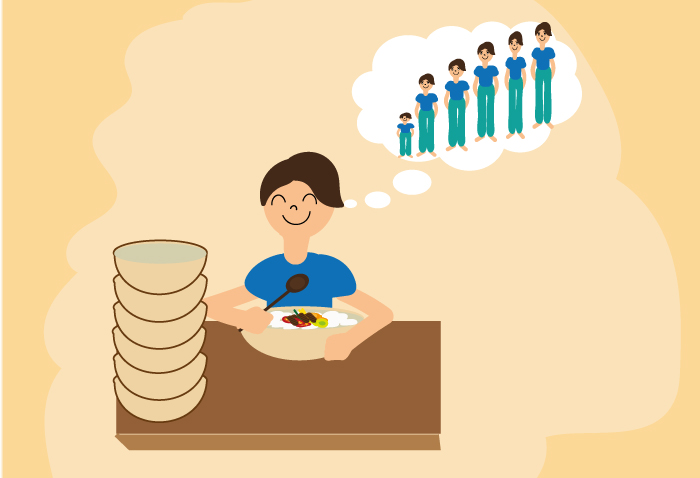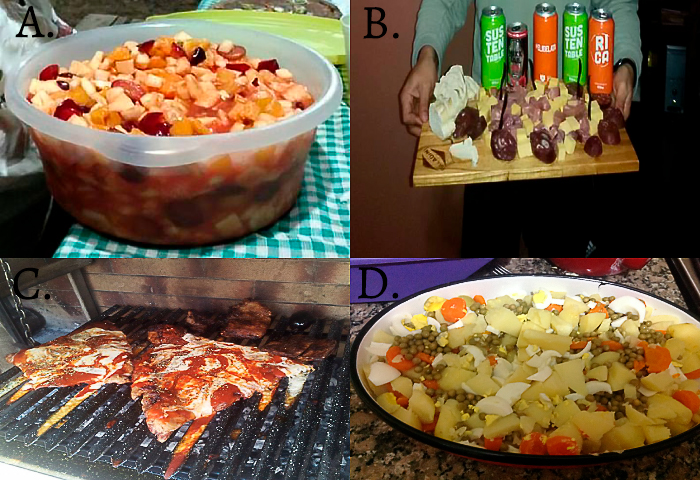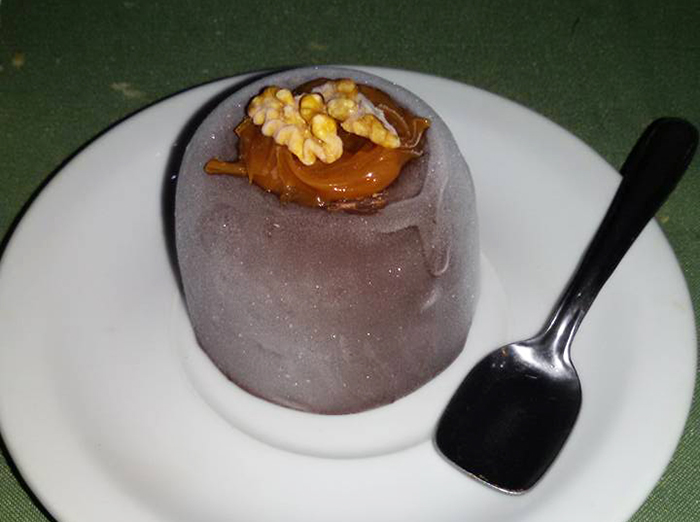View this article in another language
- 한국어
- English
- 日本語
- 中文
- العربية
- Español
- Français
- Deutsch
- Pусский
- Tiếng Việt
- Indonesian

Korea.net Honorary Reporter Cintia Mancilla from Argentina expresses her sincere wish for 2019 through this illustration.
By Korea.net Honorary Reporter Cintia Mancilla from Argentina
Photos = Cintia Mancilla
Seollal (Lunar New Year), the first day of the lunar calendar and one of Korea's top two holidays, falls on Feb. 5 this year.
Before I explain how we celebrate the new year in Argentina, let me tell two stories I saw in Korean dramas that taught me a bit about Korea's Lunar New Year holiday.
During Seollal, Koreans wish for good luck in the new year, and 2019 is expected to be especially lucky in the Year of the Golden Pig according to the Asian zodiac. The animal has traditionally symbolized good fortune and wealth in Korean culture.
While watching an episode of "The Sound of Your Heart: Reboot" (Season 1, Episode 8), the main character Seok wakes up from a strange dream featuring pigs; his girlfriend Ae-bong says she dreamed about them, too. She then tells him to buy a lottery ticket fast since dreaming of pigs is said to be an omen of good luck in Korea.

During Seollal, Koreans wish for good luck and fortune in the new year. Dreaming of pigs is considered a harbinger of good things to come.
Episode 10 of "Heaven’s Garden" shows a family sitting together around the table eating tteokguk (sliced rice cake soup). The mother Jung Jae-in encourages her daughters to eat a lot of the soup to grow up faster. At that moment, her youngest Hyun-soo says, "If I eat another four bowls, I'll become the eldest sister," but later wonders why Koreans always eat tteokguk on New Year's Day. Her grandfather Jung Boo-Sik replies with the following touching answer:
"Because it's a new year, a time for us to start everything anew. And because this is the first meal of the first day, the white rice cake symbolizes purity and innocence, so we accept the new year faithfully."
He adds that eating the dish can also mean a longer life because tteokguk is believed to reward the person with an extra year. That made me think of how a simple and humble dish can give motivation to start a new year with hope.
This episode also features many Seollal traditions such as sebae (bowing), folk games like yutnori and gifts. The family depicted in this episode also shows how Koreans in small towns in the countryside tend to keep traditions intact.

Eating tteokguk on Lunar New Year's Day in Korea is said add a year to the diner's age.
In Latin America, family is hugely important and people there usually celebrate Christmas and New Year's Eve at home, not in public places like in other countries. New Year's Eve dinner starts at 8 or 9 p.m., with the most popular foods on that day being the appetizer empanadas or picada (meat and cheese platter) and the main dish asado (barbecue), though some prefer oven roasted turkey or pork.
Side dishes include ensalada rusa (Olivier salad) and vitel toné (vitello tonnato). For dessert, Argentines like ice cream or fruit salad since December is summer in the country and we need to eat food that keeps us cool.

A. Ensalada de frutas (fruit salad)/ B. Picada (meat and cheese platter)/ C. Matambre a la pizza (pizza-style flank steak)/ D. Ensalada rusa (Olivier salad).

Bombón suizo, or a dessert featuring chocolate or vanilla ice cream filled with dulce de leche and sprinkled with nuts.
Fireworks fly everywhere and some people light and launch sky lanterns. I don’t know when this tradition started but I do remember following these lanterns as a kid with other children and trying to catch one when it was about to land on the ground. Catching a lantern is supposed to bring good luck but unfortunately, I never did.
I also recall how sad I was when we couldn't light up the lanterns because I truly believed that the higher the lanterns rose with my wishes inscribed on them, the higher the chances of my dreams coming true.
I think we all need to occasionally lean on something to give us an extra glimmer of hope for our dreams and desires.
Korea is luckier than Argentina in that Koreans get to celebrate the new year twice. All the best in 2019!
wisdom117@korea.kr
* This article is written by a Korea.net Honorary Reporter. Our group of Honorary Reporters are from all around the world, and they share with Korea.net their love and passion for all things Korean.
Most popular
- Grammy-winning producer calls Suga of BTS 'amazing artist'
- 'Universal love, family' themes fuel success of 'King of Kings': director
- Council sets minimum hourly wage in 2026 at KRW 10,320
- Expansion of foreign app system raises tourist convenience
- Nat'l population diversity rose nearly 8% from 2018-22: study
